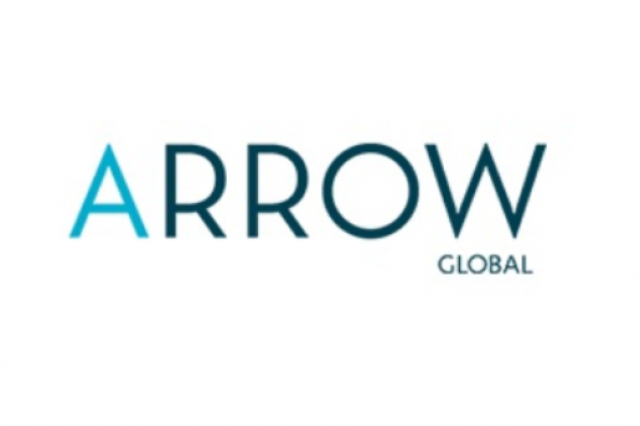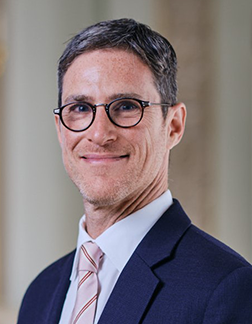ASK 2022
[ASK 2022] Tailored strategies outperform in European credit market: Arrow Global
The private credit manager emphasizes localization for high performance in each country and asset class
By Jun 22, 2022 (Gmt+09:00)
7
Min read
Most Read
LG Chem to sell water filter business to Glenwood PE for $692 million


Kyobo Life poised to buy Japan’s SBI Group-owned savings bank


KT&G eyes overseas M&A after rejecting activist fund's offer


StockX in merger talks with Naver’s online reseller Kream


Mirae Asset to be named Korea Post’s core real estate fund operator


As a leading European private credit asset manager, Arrow Global operates its own servicing platforms that most accurately fit Europe. As the European banking sector is 2.5 times the size of the US and fragmented, Arrow Global targets the sector with strong local strategies, its founder, CEO and CIO Zach Lewy said.
To deal with the market volatility, Arrow Global has shortened its weighted average lives. Its historical weighted average life has been 21 months over the past 17 years, and this has been reduced to 15 months over the past two years to take the risk off the table. The asset management firm remains vigilant, but there are buffers in terms of asset value, and levers such as bringing the weighted average life shorter, Lewy said. The following is an edited transcript of the interview with Lewy.
▲ Arrow Global operates its own 17 servicing platforms. Why did you pursue this local strategy, which is quite unusual for a fund manager?
"Arrow is unique because it is a fund manager that has its own servicing platforms. We have built these platforms as it is the optimal business model to fit Europe. The European banking sector is 2.5 times the size of the US, but it is highly inefficient, overbanked with nearly 6,000 banks, and very fragmented."
"When you are dealing with 24 official languages, 29 national supervisory authorities (excluding two in the UK), 29 different legal frameworks, judicial systems and tax regimes, as well as different cultures, customer behaviors and business practices, it makes complete sense to have a local, on-the-ground presence. We have circa 2,500 people working across five countries, which allows us to be a dominant player in various European asset classes such as real estate development and management in Portugal, secured servicing in the Netherlands and Ireland, master servicing and structured finance transactions in Italy and unsecured servicing and real estate development finance in the UK."
"Contrast this with a fund manager who operates exclusively out of a London or New York office with no on-the-ground expertise or just outsourced partners. Not only do we see the deal flow that never comes to their attention, but because we actually service these assets daily, our portfolio management actions ensure we optimize the value of those assets throughout their lifecycle."
"We have run the business like this for 17 years and we have found the returns from being local are much stronger. Indeed, we have a strong historic track record delivering an average 18% gross internal rate of return (IRR) since 2010 with a sub 1.5% loss rate. In the first quarter of 2022, 100% of our deals were bilateral, off-market trades."

▲ We are seeing interest rate hikes to control inflation. Is this a concern for asset-related exposures?
"We have to see where market volatility ultimately takes rates. At the moment the kind of rate rises we are seeing aren’t enough to negatively impact distressed investment strategies, particularly when you are entering at a big discount to par. At the moment, we are not seeing, nor expecting, large rate movement to fundamentally change asset prices."
"The European Central Bank, and president Christine Lagarde in particular, has been clear that it doesn’t want to see persistently higher rates. Even if we see interest rates back at zero or above by the end of September, I don’t think we will see substantial volatility in some of the alternative asset classes like real estate. To illustrate the existing rate headroom, in the Netherlands, the peak time for Dutch foreclosure on residential was in 1982 when interest rates were 13%, so a 2% interest rate is not going to cause massive distress or loss."
"One way Arrow Global works to deal with market uncertainty is to make our weighted average lives shorter. Our historical weighted average life has been 21 months over the past 17 years, and over the past two years we have brought this down to 15 months – this means you get your money back quicker and you take the risk off the table. In summary, we remain vigilant, but there are buffers in terms of asset value, and levers such as shortening the weighted average life."
▲ To what extent does private real estate debt provide an access to distressed opportunities?
"Real estate is an asset class that is very attractive for investors in Europe, and it’s a space in which Arrow has been growing its expertise over many years. Arrow started life investing into the unsecured asset class – mainly credit and utility exposures – but over the years we have expanded into 24 asset classes including residential and commercial real estate."
"The driver for this is something that Korean investors will be able to relate to – the lack of land, the lack of residential and commercial real estate and the simple supply and demand dynamic, that makes real estate a very attractive asset that underpins our fund investments. To date, over 80% of our investments in our Arrow Credit Opportunities 1 fund are backed by real estate or cash in court, which gives our investors the security that they seek when investing in the European alternative asset class."
"As evidence of the growing opportunity, we have recently moved into real estate-backed financing with the launch of Bergen Finance which provides asset-backed real-estate bridge loan financing as well as real-estate development finance via Maslow Capital that offers funding from £5 million up to £300 million for mid-market developers in the UK. As of the first quarter of 2022, our gross IRR on drawn capital is 27% highlighting the quality of the underlying assets."
▲ Will limited partners (LPs) have to sacrifice the traditional outperformance of private credit to align with ESG principles?
"I actually think the opposite will be true. ESG is ultimately about taking a long-term perspective on business risk and it stands to reason that the better you do this, the more sustainable and attractive your returns will be. Of course, there are certain reporting standards, which provide oversight and governance, such as the International Sustainability Standards Board (ISSB) or the Task Force on Climate-Related Financial Disclosures (TCDF), but these should ultimately drive better investment decisions."
"What is interesting is when, not if, we will see an alignment of ESG reporting to harmonize and standardize disclosures. My personal view is that we need this convergence to help create a level playing field and data transparency can only ever be a positive for LPs, general partners (GPs) and their assets."

Lewy has over 23 years of executive experience in investment management and asset servicing. He founded Arrow Global in 2005 and serves as the group's CEO and CIO. He led the fundraising process for Arrow Credit Opportunities 1, the largest inaugural private credit fundraising globally in 2020 and the fourth-largest private credit fundraising overall in Europe in 2020. He has supervised over 800 deals at Arrow.
Prior to joining Arrow, he was an officer of Sallie Mae, a director at Vertex (the BPO division of United Utilities), and a founder and executive director of 7C (a UK BPO company acquired by Vertex). Lewy was previously the chair of the UK Debt Buyers Association and was named an Ernst and Young Entrepreneur of the Year in 2010.
Write to Jun-Ho Cha at chacha@hankyung.com
Jihyun Kim edited this article.
More to Read
-
 Private debtKorean LPs join Antares Capital’s $3.5 bn credit fund
Private debtKorean LPs join Antares Capital’s $3.5 bn credit fundJun 10, 2022 (Gmt+09:00)
2 Min read -
 Alternative investmentsHigh conviction in private credit for a global portfolio
Alternative investmentsHigh conviction in private credit for a global portfolioApr 12, 2022 (Gmt+09:00)
5 Min read -
![[ASK 2021] European NPL market growth creates investment opportunities](/data/ked/image/2021/11/08/ked202111080007.145x94.0.jpg) Arrow Global[ASK 2021] European NPL market growth creates investment opportunities
Arrow Global[ASK 2021] European NPL market growth creates investment opportunitiesNov 08, 2021 (Gmt+09:00)
2 Min read
Comment 0
LOG IN


